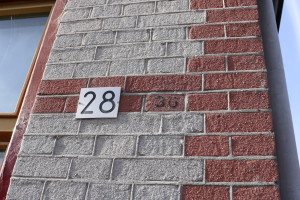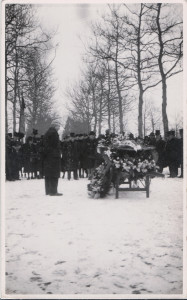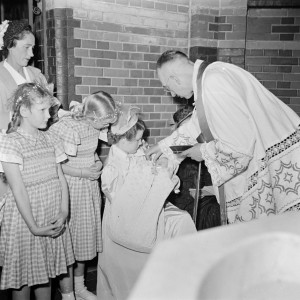Ruilverkaveling means to trade plots of land to consolidate land ownership. At the beginning of the 20th century, land ownership was fragmented. Larger plots were easier to work with machines. As mechanization of agriculture increased, so did the demand to consolidate the small plots in larger plots. The first ruilverkaveling took place on the island of Ameland in 1916. Generations of estate divisions among several heirs had resulted in tiny plots. In one part of Ameland, 119 owners owned … [Read more...]
Dutch Term – Generaliteitslanden
The Generaliteitslanden were the terroritories that were under the direct command of the States General of the Dutch Republic. The Dutch Republic was formed in 1579, when seven provinces united forces during the Treaty of Utrecht: Friesland, Groningen, Overijssel, Gelderland, Utrecht, Holland, and Zeeland, plus Drenthe (ruled by Overijssel). The governing body was the States General. The Dutch Republic also included other territories that were under the command of the States General, … [Read more...]
Dutch term – Omnummeren
Omnummeren means to renumber. In the past, addresses often changed from one census/population register to the next. The houses would be omgenummerd; renumbered. This can make it difficult to find the modern locations of historical addresses. See tips for finding the address where your ancestors lived for some ideas. Some archives have omnummerlijsten (renumber lists) or omnummerregisters (renumber registers), either created in the past and part of their records, or created in the modern … [Read more...]
Dutch term – Boomgaard
A boomgaard is an orchard. In older records, you may see the word spelled as boomgaerd, bogaerd, or even bongerd. You may come across the term in land records. Some last names are derived from the word boomgaard: Van den Bogaerd, Van den Bogert, and even the Latinized Bogardus all mean "from the orchard." … [Read more...]
Source – Staatscourant [National Gazette]
The Staatscourant [National Gazette] is the official newspaper of the Dutch government. Established in 1814, the gazette publishes all laws, regulations, and other official announcements of the Netherlands. Genealogical information in the Staatscourant Some announcements deal with individuals. A few examples of genealogical information you can find in the gazette: Appointments, transfers, promotions, or pensions of civil servants, including public school teachers, police officers, etc. … [Read more...]
Dutch term – Gaarder
A gaarder is a collector, typically of taxes or tariffs. You may come across the term doing research in the province of Holland between 1695 and 1806, when a special tax ("impost") was levied on marriages and burials. The duties that had to be paid depended on the economic circumstances of the bridal couple or the deceased. The records of those taxes are known as the gaarderboeken [collectors' books]. These records can be used as substitutes for marriage and burial records. The actual … [Read more...]
Dutch term – Stamboek
A stamboek is a military service register. Outside genealogy, the word stamboek is also used for a studbook, a register of the pedigree of purebred animals. This usage has led several genealogy websites, including Ancestry, to mistranslate the stamboek military records as "studbooks." … [Read more...]
Dutch term – Lijkschouwing
Lijkschouwing literally means corpse-assessment. It is the term for the assesment by a doctor after a person died, to determine whether the person died of natural known causes, natural unknown causes, or unnatural causes. This is typically done by the doctor treating the patient or the doctor who was on call when the patient died. If unnatural causes are suspected, the doctor will inform the municipal coroner and an autopsy is usually performed. This is how it is under the current law (1991). … [Read more...]
Dutch term – Common Abbreviations in Dutch Genealogies
Here is a list of abbreviations you may find in published genealogies in the Netherlands. Abbreviation Full version Translation geb. geboren born ged. gedoopt baptized overl. overleden died begr. begraven buried tr. trouwt marries ondertr. ondertrouwt marriage banns ca. circa circa waarsch. waarschijnlijk probably zn. van zoon van son of dr. van dochter van daughter of wed. van weduwe van widow … [Read more...]











